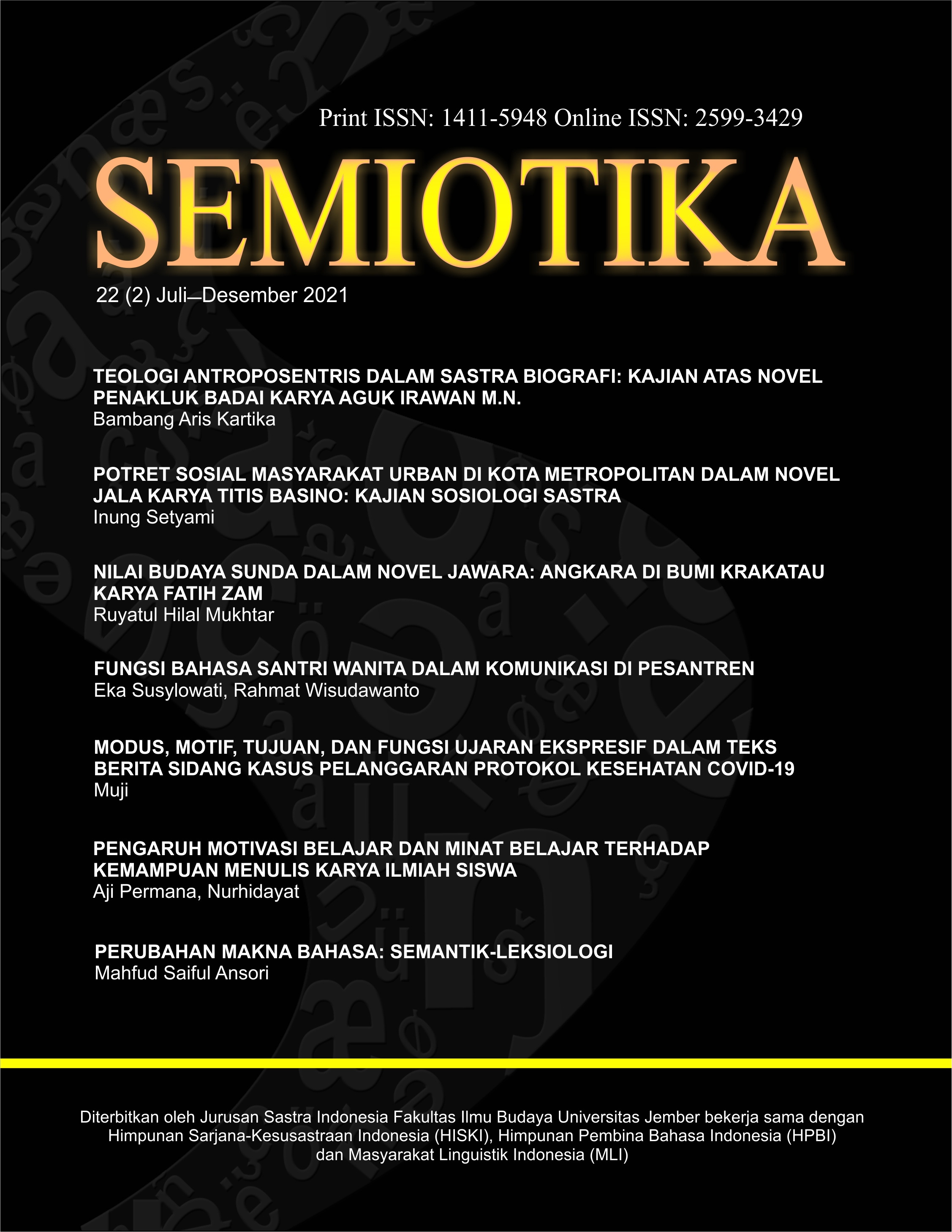TEOLOGI ANTROPOSENTRIS DALAM SASTRA BIOGRAFI: KAJIAN ATAS NOVEL PENAKLUK BADAI KARYA AGUK IRAWAN M.N.
DOI:
https://doi.org/10.19184/semiotika.v22i2.24473Keywords:
anthropocentric theology, biographical literature, dogma, historical truthAbstract
This article discusses biographical novel of K.H. Hasyim Asy'ari Penakluk Badai which represents the anthropocentric theology concept. The study of anthropocentric theology positions Islamic theology not only as a dogma, but as a theological basis for overcoming problems or problems faced by humans or Muslims. By conducting a study of the novel Penaluk Badai with an anthropocentric theology reading approach and using a qualitative methodology, it aims to identify that anthropocentric theology is the basis for the motivation of the character K.H. Hasyim Asy'ri as problem solving to problems or problems experienced by the Indonesian people, such as poverty, immorality, ignorance, oppression due to the practice of colonialism. Based on data collection and data analysis, it was found that the anthropocentric theology was functioned by the character K.H. Hasyim Asy'ari to raise awareness of Muslims to overcome the problems faced by the Indonesian people. Anthropocentric theology is the basis of legitimacy and the principle of religiosity for the attitudes, behaviors, thought patterns, and actions of K.H. Hasyim Asy'ari by establishing modern Islamic boarding schools and madrasa educational institutions, establishing a capital business for traders' organizations, issuing jihad resolution fatwas to solve the problems of Muslims.
Downloads
Downloads
Published
Issue
Section
License
SEMIOTIKA has CC-BY-SA or an equivalent license as the optimal license for the publication, distribution, use, and reuse of scholarly work. Authors who publish with this journal retain copyright and grant the journal right of first publication with the work simultaneously licensed under a Creative Commons Attribution-ShareAlike 4.0 International License that allows others to share the work with an acknowledgment of the work's authorship and initial publication in this journal.
Attribution-ShareAlike
CC BY-SA


